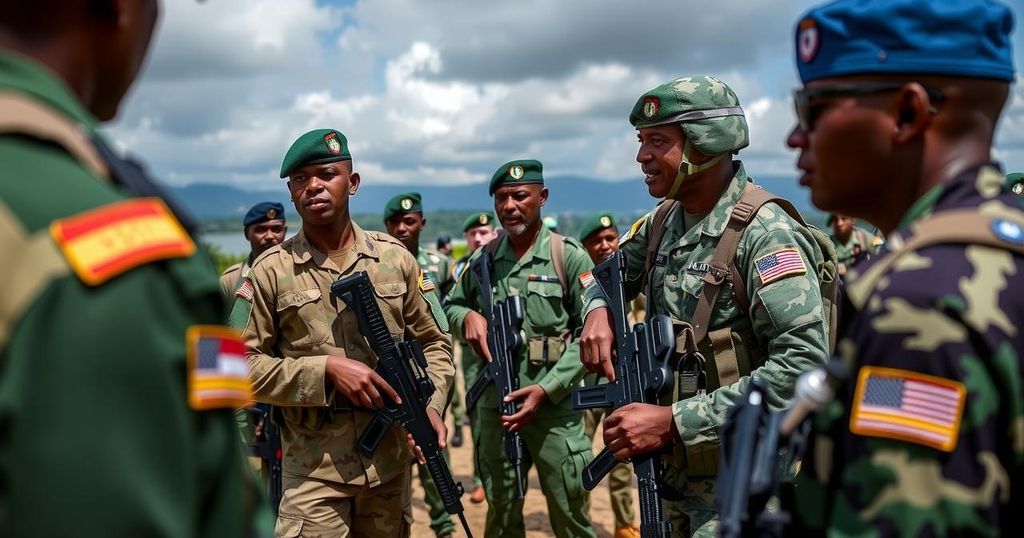The United States is accelerating efforts to convert the Kenya-led force in Haiti into a U.N. peacekeeping operation in response to rampant gang violence. A recent surge in violence, exacerbated by political turmoil, has led to significant control of Port-au-Prince by gangs. Despite attempts to secure support from the U.N. Security Council, significant funding and logistical challenges remain, as does public skepticism regarding foreign military interventions in Haiti.
The United States is intensifying its efforts to convert the Kenya-led multinational force in Haiti into a United Nations (U.N.) peacekeeping force, driven by a surge in gang violence that has recently led to the shutdown of air traffic in Port-au-Prince. This initiative correlates with proposals made by the U.S. in September for a U.N. mission, intended to stabilize the funding of the multinational force, which is struggling financially in its mission to assist Haitian national forces in curbing gang activities. In recent developments, gang-related violence has surged following the dismissal of the interim prime minister by Haiti’s transitional council amidst political strife. This turmoil has severely affected stability in the capital, where an estimated 85% of Port-au-Prince is now under gang control. Gangs have disrupted services, notably closing the main airport by targeting aircraft, resulting in injuries among crew members. Attempts by the United States to secure unanimous support from the U.N. Security Council for a draft resolution aimed at initiating the transformation of the Kenya-led force met resistance, notably from Russia and China. Russia is demanding thorough discussions regarding the security situation in Haiti before expressing support. Meanwhile, the current multinational force, initially projected to include 2,500 international police, has seen only around 430 personnel deployed, with a significant contribution from Kenya. The political instability in Haiti has roots in the assassination of President Jovenel Moïse in 2021, leading to rampant violence and civilian unrest. The current U.N. trust fund, which is crucial for financing the mission, has been described as critically underfunded, raising concerns about the sustainability of international support. Although the U.S. pledged to contribute $300 million, the total financial requirement for effective deployment remains undisputedly higher, prompting questions about future funding continuity depending on the forthcoming administration’s stance. Haiti’s leadership has formally requested the intervention of a U.N. peacekeeping force as a response to the escalating violence and insecurity. The hesitance regarding foreign military interventions in Haiti is palpable, given the historical precedents of foreign occupations that have led to public distrust. Despite the arrival of foreign troops, there are mixed reactions among the public concerning their presence, reflecting a cautious approach towards external military assistance.
Haiti has a long history of political instability and foreign military intervention. Since the assassination of President Jovenel Moïse in 2021, gang violence has increased dramatically, leading to significant control over the capital by these groups. The current situation has prompted calls for international assistance to restore security and order. The United Nations has been involved in various peacekeeping missions in the country, with recent deployments of Kenyan police intended to assist local forces in combating the pervasive gang violence. However, past missions have been shadowed by allegations of misconduct and resource challenges, raising skepticism among the Haitian populace regarding the efficacy of foreign military presence.
The initiative by the United States to transform the Kenya-led force into a U.N. peacekeeping operation underscores the urgent need for effective international intervention in Haiti amidst escalating gang violence and political instability. Despite some support for this initiative, challenges related to funding, deployment logistics, and historical hesitance regarding foreign interventions persist. As the situation remains critical, the engagement of the international community will be pivotal in addressing the complexities of Haiti’s security crisis while restoring trust among the Haitian citizens.
Original Source: www.military.com






